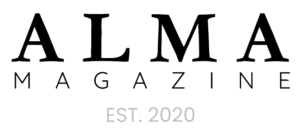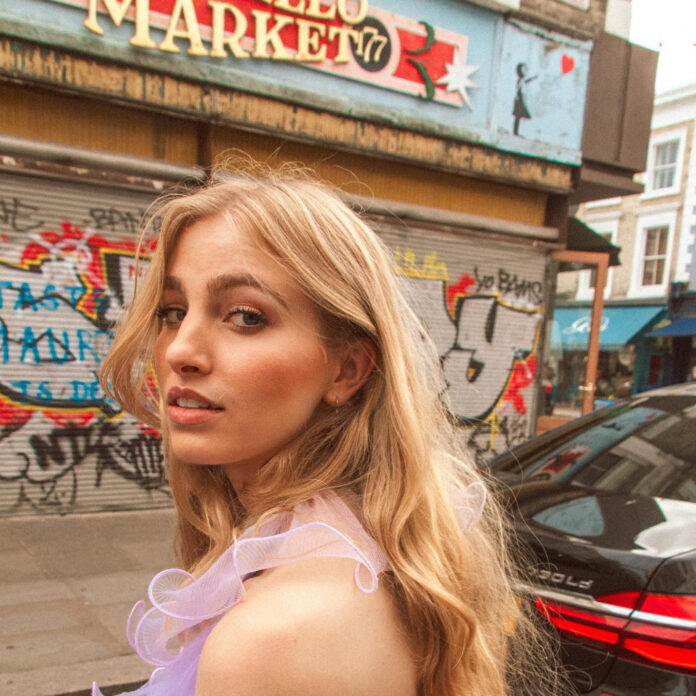Canadian singer-songwriter Elysia Biro’s approach to writing music sidesteps the predictable, in just the right measure. Her work weaves together jazz, soul, and pop, marked by raw delivery and eager storytelling. The influence of Carole King, Norah Jones, Ella Fitzgerald, and The Japanese House is palpable in her vocal style and improvisations, often arranged a sparse texture, but rich in character. Biro’s songwriting journey is defined by continuous exploration—crafting hooks as a child and developing full songs by 14. Delving into jazz at 16 expanded her harmonic language, while playing both piano and guitar offers unique perspectives that shape her compositions. Recording from the intimate space of her bedroom lends an unfiltered quality to her music, embracing the natural imperfections that come with it.
Her lyrical style can be equally candid, often mirroring the casual. In her latest clip, she captures the playful tension of love and frustration (you never clean up, you never cook, I do laundry, I do the dishes), to soon reveal a tender shift (the only thing you give back are kisses). The twist—discovering the song is about her dog—adds a touch of endearing humour (keep your leash dragging, keep your tail wagging). Biro’s storytelling feels like a cozy, familiar conversation, marked by small, honest details. As she talks about her creative process, her love for jazz standards, and the realities of being an independent artist, she reveals herself as someone who is both deliberate and refreshingly unpretentious in her craft.
- How would you describe your overall musical style and creative process? How do you develop a new song from an idea to a finished piece?
My music is a blend of a lot of influences but primarily I’ve drawn influence from jazz, soul and pop music. When I’m writing, I generally start by finding an idea that resonates deeply with me. Typically, the music comes first, and I build a narrative that aligns with the emotion(s) it brings. Generally, I just want the song to make me feel something, and then hopefully it will then also resonate in its own way with listeners.
- Could you give us insight into your creative journey? How do you blend influences and styles to create ‘your’ sound?
My creative journey started at the age of four when I started playing piano and singing. Even as a child, I was always coming up with little hooks and song ideas. The records my parents played during my childhood also had a profound impact on me and I started writing full songs when I was around 14. When I started learning jazz at 16, it opened up a new world of rich harmonies which definitely evolved my songwriting. Incorporating both piano and guitar into my writing process has also been instrumental (excuse the pun) in shaping my music. I find that each instrument brings a different perspective and leads to such different songs. Additionally, learning production has also been incredibly inspiring. I love learning, and I feel this ongoing journey of discovery allows me to continue evolving and inspires my writing.
- Do you have a favourite improv moment from a live show or recording session?
One memorable improv moment for me was when I first played the Harpejji, (which is such a cool instrument). I was improvising on it for the first time with an amazing musician and producer, Alex Bone. During those initial few touches, we stumbled upon an idea that felt special. We developed it further, and it transformed into a composition that holds great significance for me. This experience also highlighted how a new instrument can ignite inspiration and how a spontaneous musical idea can evolve into something truly meaningful which we’re hoping to complete for this new project.
- “Misty” is a beautiful nod to your jazz influences. Can you share some of the artists or genres that have had a significant impact on your music?
Thank you so much. “Misty” has always been one of my favourite standards, so it holds a special place for me. I find that inspirations emerge in so many ways when playing a song, and I strive to integrate both arrangement and improvisation when interpreting standards and my own original material live.I draw inspiration from a wide array of music and artists across various genres. I grew up listening to artists like Carole King, Norah Jones, and John Mayer. Specifically within jazz, I absorbed so much material from artists such as Ella Fitzgerald and Oscar Peterson. Additionally, I love artists like The Japanese House, Bon Iver, and the 1975. I really enjoy a variety of genres and that has played a crucial role in shaping the sound of the album I’m currently recording.
- How do you choose which pieces to transcribe? What draws you to a particular song or performance?
I have a playlist which I’ve dedicated to transcribing musical ideas, and I’m always adding to it. I usually focus on artists like Oscar Peterson and Red Garland, as despite the fact I’ve transcribed a lot of their work, I feel there’s still so much for me to learn from their playing before diving into other musicians. I’m often inspired by specific lines and the unique feel of certain solos, and then try to weave elements of their language into my own playing.
- Your bedroom demos have an intimate feel. How does recording in a personal space influence your music?
I find that being in your own creative space fosters a more relaxed atmosphere, where you can comfortably experiment with new ideas and embrace making mistakes. I also feel as a listener, it can be special to experience the sense of being in the same room with someone, as it can allow you to hear their authenticity and vulnerability.
- How do platforms like YouTube and Instagram impact your music career and creative process?
Social media comes with its share of positives and negatives, but I’m thankful for the opportunities it provides you as an independent artist. It’s allowed me to connect with new people online, build authentic relationships, and network with many people in the music industry who I may not have connected with otherwise.
- What are some of the biggest challenges you face as an independent artist, and how do you overcome them? How do you overcome creative blocks? Are there specific techniques or activities that help you regain inspiration?
As an independent artist, you have to cultivate a diverse set of skills, including everything from songwriting, performance and production to video editing and negotiation. While learning these skills, you are also having to support yourself financially and in most cases (unless you’re very fortunate), self-fund any projects you are creating.
Along with these aspects, you’re often dealing with challenges like self-doubt or imposter syndrome. That’s obviously not bound to make you feel as inspired. I try to overcome these emotions by finding inspiration in my incredible musician friends and fellow artists and their creative journeys. As well, I find I’m very inspired by my surroundings, so I enjoy writing outside at parks, cafes or really anything different to capture a new feeling. Despite the hurdles that come along with the music industry, I am genuinely profoundly grateful for the opportunity to be an artist. I have really enjoyed developing these skills and enjoy the ongoing learning journey.
- Can you give us a sneak peek into any upcoming projects or releases?
I’m thrilled to be working on my first album, a project that has been evolving and taking shape over several years as I’ve honed my artistic direction. This album represents a culmination of my emotional journey and growth as an artist, blending many of my influences. I can’t wait to share with everyone and am deeply grateful for the opportunity to bring it to life.
Click here to know more about Elysia Biro or follow her on Instagram.

Our mascot writes all ALMA Staff pieces. ORI is whimsical and unpredictable; we’ve tried being friends with him and failed.




